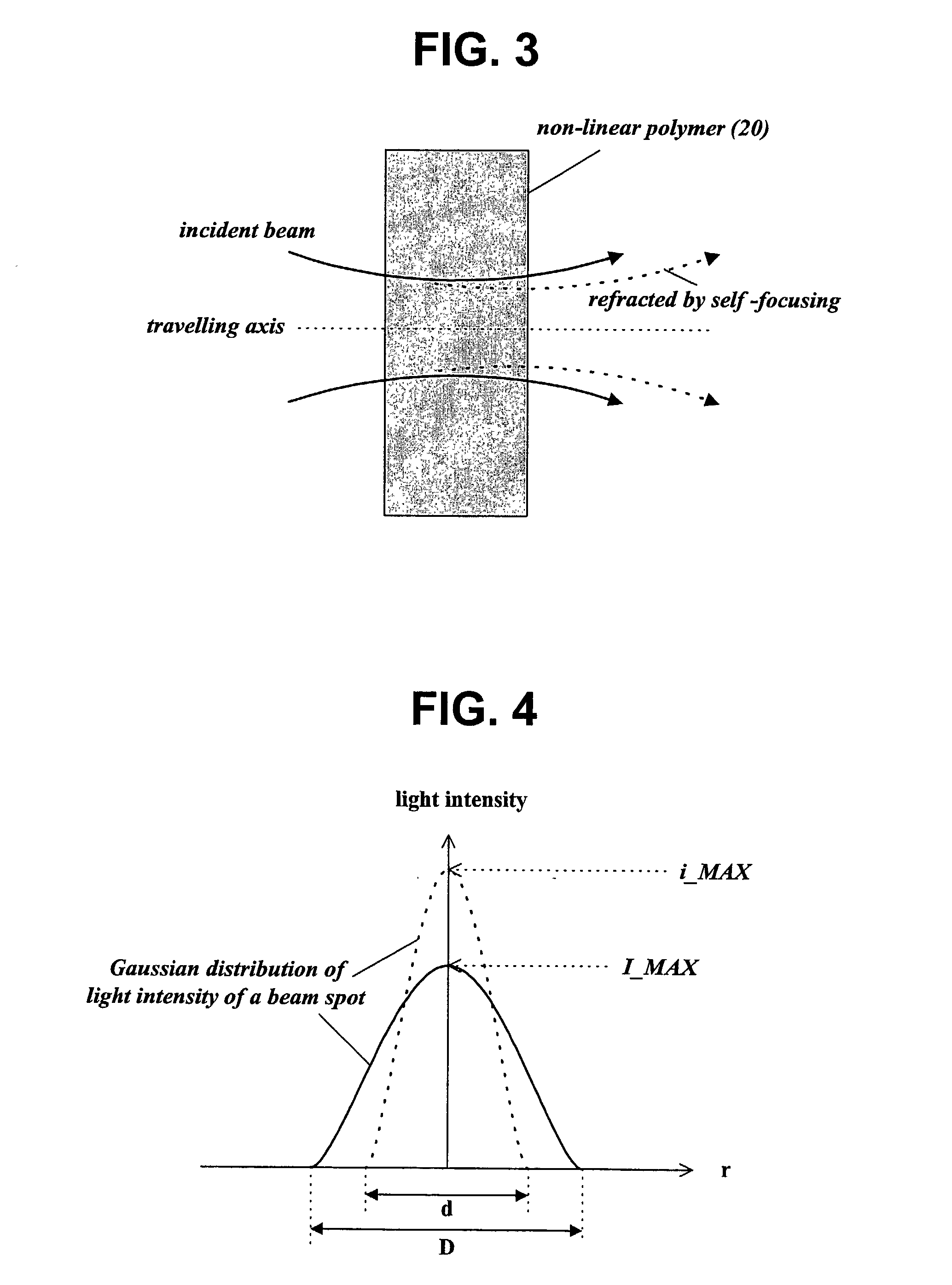High-density optical disk with a polymer film featuring thermochromism
a polymer film and optical disk technology, applied in the field of high-density (hd) optical disks, can solve the problems of inability to make the beam size, inability to achieve the size of the beam, and inability to achieve effective solutions for situations such as this exampl
- Summary
- Abstract
- Description
- Claims
- Application Information
AI Technical Summary
Benefits of technology
Problems solved by technology
Method used
Image
Examples
Embodiment Construction
[0027] In order that the invention may be fully understood, a preferred embodiment thereof will now be described with reference to the accompanying drawings.
[0028] FIG. 1 shows a schematic structure of a conventional optical disk which has a transmission layer 10 as a substrate, a reflection layer 11 formed above the transmission layer 10, and a protective layer 12 coated onto the reflection layer 11. FIG. 2 shows schematic structure of a HD optical disk according to the present invention. The optical disk of FIG. 2 is the same as the conventional one of FIG. 1, except a nonlinear polymer film 20, which exhibits self-focusing and optical bleaching properties, is formed below the transmission layer 10. Consequently, a recording layer can support pits and / or spaces situated more closely together for recorded signals than those in a conventional HD optical disk.
[0029] The third-order optical nonlinearity of the polymer film 20 induces light-intensity-dependent optical constants, i.e., ...
PUM
 Login to View More
Login to View More Abstract
Description
Claims
Application Information
 Login to View More
Login to View More - R&D
- Intellectual Property
- Life Sciences
- Materials
- Tech Scout
- Unparalleled Data Quality
- Higher Quality Content
- 60% Fewer Hallucinations
Browse by: Latest US Patents, China's latest patents, Technical Efficacy Thesaurus, Application Domain, Technology Topic, Popular Technical Reports.
© 2025 PatSnap. All rights reserved.Legal|Privacy policy|Modern Slavery Act Transparency Statement|Sitemap|About US| Contact US: help@patsnap.com



